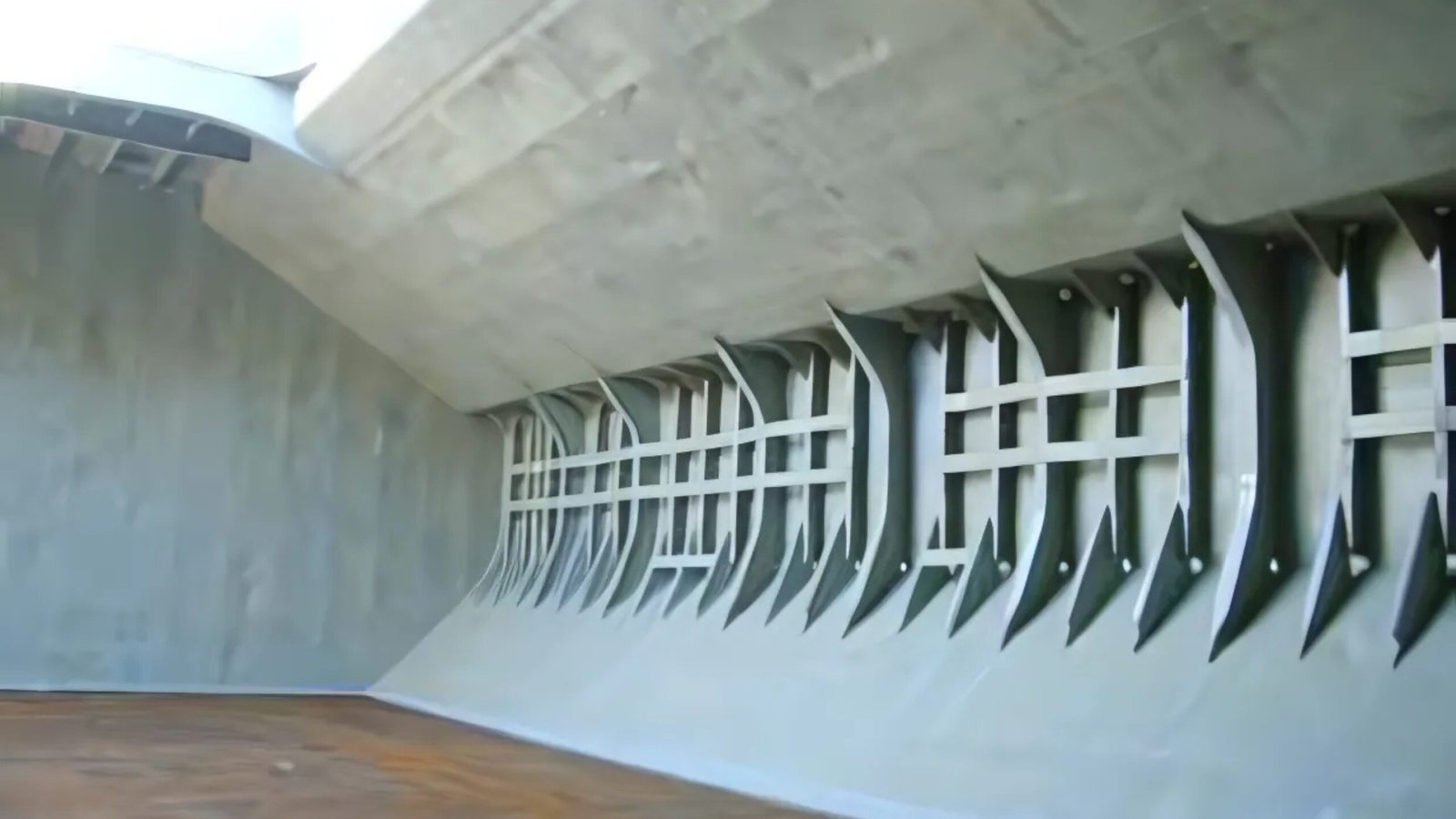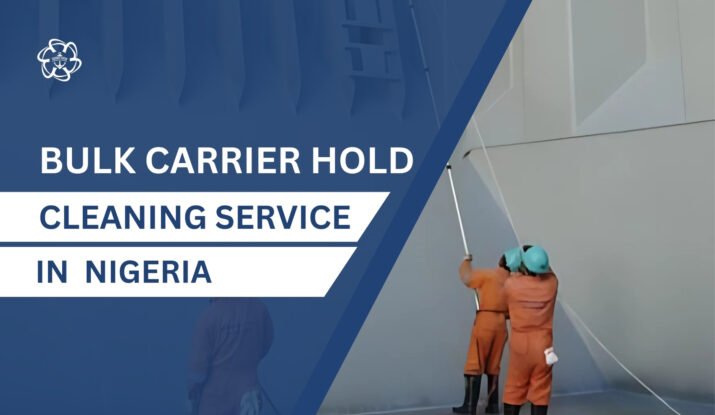Hold Cleaning Service in Nigeria has become an essential requirement for global shipowners operating through West African routes. Nigeria, with its strategic location and bustling ports such as Lagos Port, Port Harcourt, Onne Port, Calabar Port, and Warri Port, plays a pivotal role in the maritime trade of oil, agricultural products, and dry bulk cargo. Efficient hold cleaning service in Nigeria not only guarantees cleanliness and safety but also ensures compliance with international standards such as the IMO and MARPOL regulations.
In the marine industry, hold cleaning service in Nigeria is not just a maintenance procedure—it is a critical operational component. Ship holds that are not cleaned effectively can lead to contamination, rejection of cargo, or even hefty fines due to regulatory non-compliance. The tropical climate of Nigeria, with its high humidity and occasional rainfall, adds further challenges to hold cleaning activities. Therefore, choosing a reliable and efficient hold cleaning service in Nigeria is vital to maintain cargo integrity, crew health, and vessel efficiency.
Within the first stage of any cargo loading in Nigeria, inspections by port officials and cargo surveyors begin by evaluating the cleanliness of cargo holds. Any traces of previous cargo, residues, infestation, or rust can delay or cancel loading. Hence, ship operators and agents insist on engaging professional hold cleaning service in Nigeria to ensure that holds are cleaned to a “grain clean” or “hospital clean” standard, depending on the cargo to be carried.
Hold cleaning service in Nigeria also becomes vital when switching between incompatible cargoes. For instance, after discharging coal or petcoke, a vessel may be required to load grain or fertilizer. Without thorough cleaning, residue from the previous cargo can cause chemical contamination, moisture retention, or mold growth. This is where experienced hold cleaning professionals in Nigeria offer significant value by applying advanced cleaning techniques.
Techniques and Equipment Used in Hold Cleaning in Nigeria
Modern hold cleaning service in Nigeria incorporates a variety of techniques depending on the cargo residues and the vessel’s hold conditions. These methods can include high-pressure water washing, chemical washing, sweeping, scraping, scaling, and drying. Hold cleaning service in Nigeria often uses:
- High-pressure washing machines (up to 500 bars)
- Chemical solvents for greasy residue
- Descaling tools and pneumatic chipping hammers
- Dehumidifiers and blowers for drying post-cleaning
- Scaffolding and rope access for hard-to-reach spaces
The process begins with a detailed inspection of the cargo hold, identifying any persistent stains, residues, or rust patches. Hold cleaning service in Nigeria providers then proceed with mechanical cleaning using sweepers and scrapers to remove dry residue. High-pressure washers are used next to clean off salt, grease, or sticky materials. In some cases, light chemicals are used in line with MARPOL Annex V restrictions to enhance effectiveness. The hold is then thoroughly dried to prevent mold formation before inspection.

Importance of MARPOL and IMO Compliance
One of the significant advantages of utilizing a reliable hold cleaning service in Nigeria is strict adherence to IMO and MARPOL compliance. MARPOL Annex V specifically governs the prevention of pollution by garbage from ships. Disposing of cargo residues into the sea is strictly regulated. Effective hold cleaning service in Nigeria ensures that all waste materials and water used in the cleaning process are handled and disposed of properly.
Moreover, IMO compliance is essential for vessels engaged in international trade. Failure to follow IMO cleaning and waste disposal standards can lead to vessel detainment at ports, legal penalties, and cargo rejection. Hold cleaning service in Nigeria is therefore designed to meet or exceed international maritime standards, ensuring smooth port operations and protecting the marine environment.
Major Ports in Nigeria and Their Relevance to Hold Cleaning
Nigeria is home to several active seaports where hold cleaning services are commonly needed. These include:
- Lagos Port: Nigeria’s busiest port, handling most container and dry bulk cargo. It has high scrutiny for vessel cleanliness.
- Port Harcourt: A major export center for oil and dry commodities.
- Onne Port: A deep seaport with modern facilities serving the offshore oil and gas industry.
- Calabar Port: Handles agricultural and general cargo.
- Warri Port: Serves the central and southern regions of Nigeria.
Hold cleaning service in Nigeria must cater to the specific demands of these ports, adapting cleaning methods to local inspection requirements and cargo types.
Pre-Cleaning Inspection and Documentation
A critical part of any hold cleaning service in Nigeria is the pre-cleaning and post-cleaning inspection process. Prior to cleaning, surveyors assess the hold’s condition and provide detailed photographic documentation. The objective is to identify potential problem areas that require special attention.
After the cleaning operation, a final inspection is conducted to verify that all IMO and MARPOL standards are met. This is usually followed by issuance of a Hold Cleanliness Certificate or Cleaning Completion Report, which is mandatory for loading in many Nigerian ports.
Challenges and Solutions in Hold Cleaning in Nigeria
There are several challenges associated with hold cleaning service in Nigeria, such as:
- Unpredictable weather conditions: High humidity can delay drying processes.
- Limited freshwater availability: Required for effective cleaning, especially in remote ports.
- Port congestion: Quick turnaround times put pressure on hold cleaning timelines.
- Inconsistent waste disposal infrastructure: Makes MARPOL-compliant waste management difficult.
To overcome these, professional hold cleaning service providers in Nigeria often bring portable cleaning units, freshwater supplies, and onboard waste containment systems. Scheduling cleaning operations immediately after discharge also helps utilize time efficiently before loading.
Safety and Crew Welfare During Hold Cleaning
Another essential element of hold cleaning service in Nigeria is ensuring the safety of cleaning personnel and vessel crew. Hold cleaning involves confined spaces, slippery surfaces, and hazardous residues. All operations are conducted following strict safety protocols including:
- Use of PPE (Personal Protective Equipment)
- Adequate ventilation during chemical or pressure cleaning
- Trained personnel with confined space entry certification
- Emergency standby arrangements
Ensuring safety while maintaining high cleaning standards is a hallmark of reputable hold cleaning services in Nigeria.
Post-Cleaning Quality Assurance and Port Clearance
Post-cleaning, the vessel must be ready for third-party inspection by cargo surveyors or port health authorities. A key part of a successful hold cleaning service in Nigeria is ensuring that all holds meet the cleanliness standards required for the cargo. This includes:
- No visible remnants of previous cargo
- Absence of rust scale, grease, or stains
- Dry and odor-free cargo holds
- No insects, rodents, or infestation
Only when these requirements are met can loading begin. Failure to comply may lead to costly re-cleaning or demurrage. Hence, experienced hold cleaning service providers in Nigeria aim for first-time approval to save time and resources.
Conclusion
The demand for professional Hold Cleaning Service in Nigeria continues to grow due to the country’s role as a major export hub for dry bulk and agricultural goods. Clean holds are essential not only for cargo safety but also for complying with international marine pollution regulations set by IMO and MARPOL.
From major ports like Lagos to Warri, each terminal requires specific cleanliness levels depending on the cargo. A well-executed hold cleaning service in Nigeria minimizes delays, enhances cargo integrity, and ensures vessels remain compliant with global standards. Professional teams equipped with the right tools and regulatory knowledge can make all the difference.
For vessels operating in or transiting through Nigeria, investing in reliable hold cleaning services is a necessity, not a choice. With the right partner, shipowners can maintain operational efficiency, regulatory compliance, and environmental stewardship.
Frequently Asked Questions (FAQs) – Hold Cleaning Service in Nigeria
1. What is a hold cleaning service in Nigeria and why is it essential?
Hold cleaning service in Nigeria refers to the professional cleaning of cargo holds on bulk carrier vessels operating at Nigerian ports. It is essential to ensure that the holds are free from contamination, residues, moisture, and rust before loading a new cargo type. Proper hold cleaning upholds compliance with IMO and MARPOL standards, protects cargo integrity, and ensures that chartering requirements are met.
2. Which ports in Nigeria offer hold cleaning services?
Hold cleaning service in Nigeria is available at major ports including Port of Lagos, Port of Onne, Port Harcourt Port, and Calabar Port. These ports are fully equipped to support pre-cleaning inspections, freshwater washing, and chemical applications.
3. What are the IMO and MARPOL requirements for hold cleaning services in Nigeria?
The International Maritime Organization (IMO) and MARPOL Annex V regulate waste discharge and cleanliness standards for cargo holds. Hold cleaning services in Nigeria must comply with these international frameworks, which mandate thorough removal of residues and prohibition of marine pollution during cleaning operations.
4. How often should hold cleaning be done on bulk carriers at Nigerian ports?
The frequency of hold cleaning service in Nigeria depends on cargo type, vessel charter terms, and trade route. Typically, holds are cleaned after each discharge, especially when switching cargo types (e.g., from coal to grain). Proper inspection by port authorities may also necessitate additional cleaning to meet loading readiness.
5. Is freshwater or chemical cleaning used in Nigerian hold cleaning services?
Both methods are employed depending on cargo and contamination type. Freshwater washing is common for general residue removal, while chemical cleaning is used for removing stubborn stains, oily films, or russt scales. Hold cleaning service in Nigeria is customized to meet port inspection and cargo requirements.
Contact Information
Email: ops@marinesupercargo.com
Website: marinesupercargo.com
Phone: +91 7080050720


